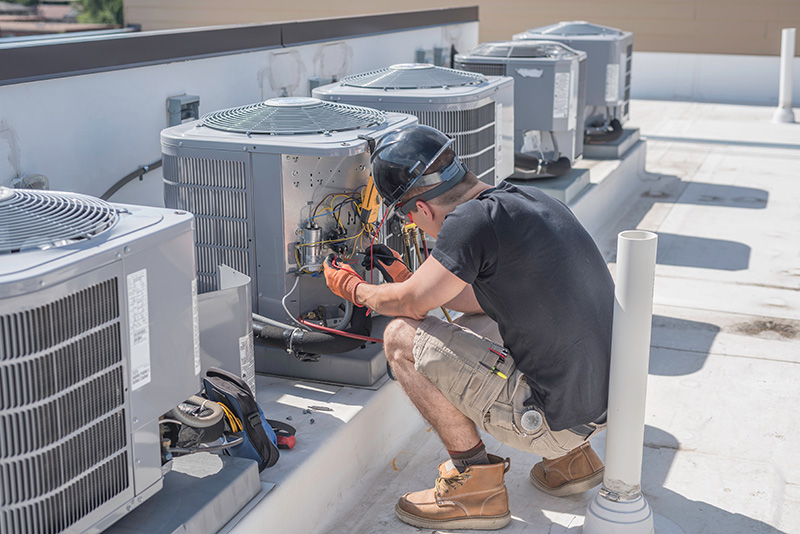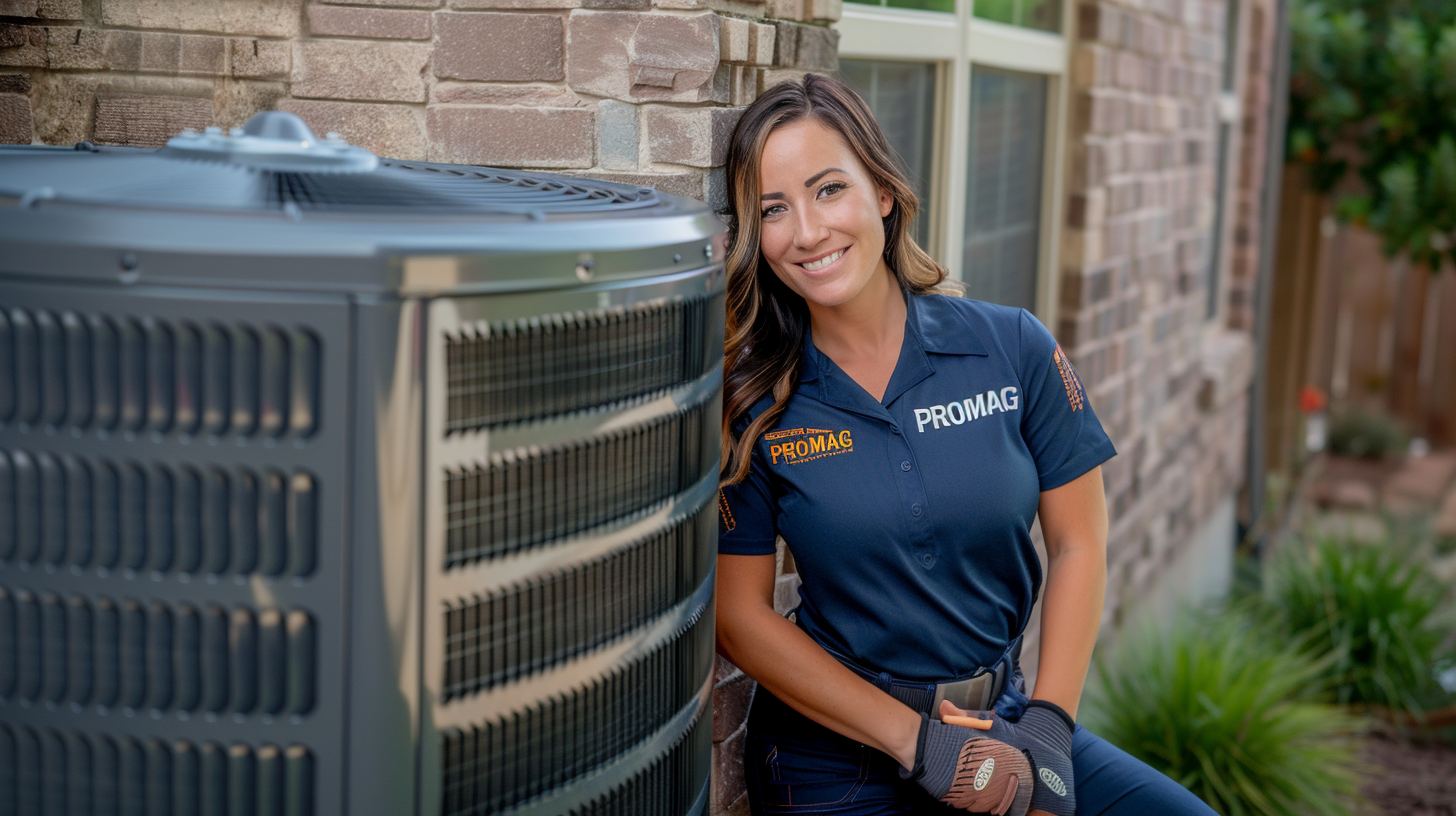Efficient Heating Repairs Done Right by DMAKS HVAC Experts.
Efficient Heating Repairs Done Right by DMAKS HVAC Experts.
Blog Article
Energy-Efficient A/c Systems to Minimize Energy Expenses
As energy prices proceed to rise, the importance of energy-efficient Cooling and heating systems ends up being significantly apparent. These systems not just promise considerable financial savings on utility expenses but additionally contribute to a more lasting future by lessening energy intake.
Benefits of Energy-Efficient A/c Systems
Energy-efficient Cooling and heating systems offer countless advantages that prolong beyond simple expense savings. By consuming less power, these systems add to lower greenhouse gas emissions, aiding to deal with climate adjustment and advertise sustainability.
Additionally, energy-efficient heating and cooling systems usually offer boosted comfort levels. A lot of these systems include innovative modern technology that enables far better temperature control and boosted air quality (DMAKS HVAC). This causes a healthier indoor environment, which is especially essential for individuals with allergic reactions or respiratory system problems
Additionally, purchasing energy-efficient HVAC systems can enhance residential or commercial property value. As more consumers prioritize power performance, homes and buildings equipped with these systems might draw in higher proposals in the property market.
Types of Energy-Efficient A/c Options
How can home owners and organizations pick the most suitable energy-efficient HVAC alternatives for their needs? The marketplace supplies a range of energy-efficient cooling and heating systems, each developed to improve convenience while reducing energy consumption.
One choice is the variable cooling agent flow (VRF) system, which efficiently manages the temperature in several areas within a structure. This system adjusts its refrigerant flow to match the wanted temperature, causing considerable power savings.
One more prominent choice is geothermal heatpump, which use the earth's steady temperature to warmth and trendy areas. By transferring warmth to and from the ground, these systems demonstrate remarkable performance, particularly in modest climates.
In addition, ductless mini-split systems offer an energy-efficient option for homes lacking ductwork. These systems enable zone-specific cooling and heating, reducing power waste in vacant locations.
Lastly, high-efficiency heaters and air conditioning unit, with sophisticated SEER and AFUE ratings, use dependable environment control while eating much less energy than standard versions. By evaluating these choices, home owners and businesses can pick a cooling and heating system tailored to their particular demands and energy effectiveness objectives.
Trick Features to Consider

Next, explore the kind of compressor used in the system. DMAKS HVAC. Variable-speed compressors can readjust their output to match the home heating or cooling need, resulting in enhanced comfort and energy savings contrasted to single-speed models. In addition, search for my link systems equipped with wise thermostats that supply programmable settings and remote accessibility, permitting far better control over energy usage
Another important attribute is the system's air purification capacity. High-efficiency filters can boost interior air top quality and lower power intake by making certain the system operates effectively. Consider the type of cooling agent made use of; contemporary systems usually use environment-friendly refrigerants that have a lower ecological influence.
Last but not least, make certain that the system works with zoning innovation, which enables for personalized temperature control in different locations of your home, improving comfort while decreasing power use.
Tips for Selecting the Right System


Next, take into consideration power performance rankings, specifically the Seasonal Power Performance Proportion (SEER) for cooling systems and the Yearly Fuel Usage Performance (AFUE) for heating unit. Greater ratings suggest higher performance, which can bring about substantial cost savings on utility bills with time.
In addition, evaluate the kind of heating and cooling system that best fits your way of life and spending plan. Options include main air conditioning, ductless mini-splits, and warm pumps, each with its very own set of benefits and drawbacks.
Do not overlook the significance of appropriate setup and sizing; an inaccurately sized system can result in inadequacies and increased wear. Seek advice from with a professional A/c professional to get experienced referrals customized to your home's one-of-a-kind demands. This detailed strategy will make sure that you choose an energy-efficient go to my site heating and cooling system that fulfills your demands and budget efficiently.
Maintenance for Ideal Performance
When the ideal HVAC system remains in location, recurring maintenance ends up being crucial to making sure ideal effectiveness and long life. A properly maintained system runs more efficiently, leading to reduced power intake and lowered energy costs. Routine evaluations and tune-ups must be arranged at the very least two times a year-- as soon as before the cooling season and once before the heating period.

House owners need to additionally be cautious concerning monitoring their a/c system's efficiency. Uncommon noises, click here for more varying temperatures, or increased energy expenses can indicate underlying problems that need prompt focus. By resolving these problems promptly, property owners can stop pricey repair work and expand the life-span of their systems.
Investing in an upkeep strategy with a certified service technician not just boosts efficiency however additionally offers satisfaction, recognizing that the system is running at its ideal. DMAKS HVAC. Routine maintenance is therefore crucial for sustaining energy efficiency and lowering total operational prices
Final Thought
In verdict, energy-efficient heating and cooling systems provide a sensible option for minimizing energy expenses while boosting comfort and air quality. By incorporating advanced technologies and options such as geothermal warmth pumps and ductless mini-splits, residential property owners can accomplish considerable power savings and contribute to environmental sustainability. Careful consideration of system functions and continuous maintenance better ensures ideal performance, making energy-efficient systems a prudent investment for both financial and eco-friendly benefits.
Report this page